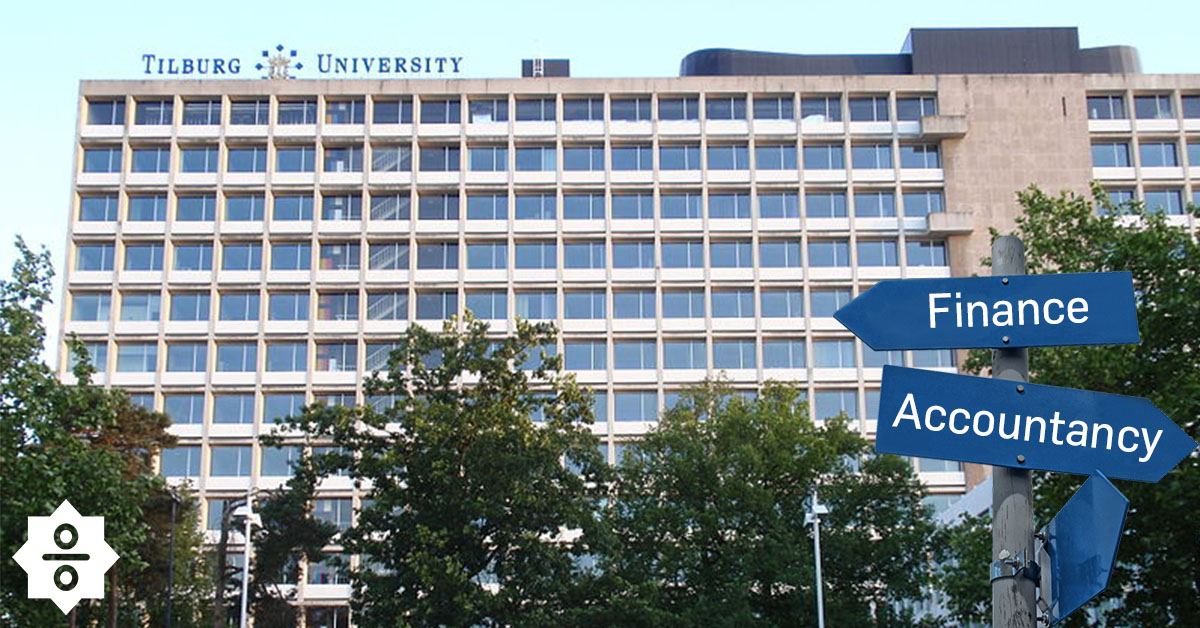Picture: Ron Maijen
For the Dutch version, click here
It’s that time of the year again when all students are starting to think about what to study and where to study. There are so many choices and so many cities that offer the same study, which makes it a very difficult choice for most students. Hence, to lighten this burden a bit up, current students of MSc Finance (Boris de Bie) and MSc Accountancy (Emil & Kevin de Veer) have given their thoughts about the program that they are following at Tilburg University.
MSc. Accountancy – Emil & Kevin de Veer
When we had to make the decision to choose a masters to study, we were both really hesitant on choosing Accountancy. We really had the idea that it would all be about bookkeeping and reconciling balance sheets the whole time, but were surprised to find out that it was a lot more than that!
“Not only do I feel like they are preparing you to become an excellent chartered accountant or controller, but they also teach you how you can master the financial language of the world. “
Emil: After I found out about this, I applied in no time because I knew that this was exactly what I wanted to do. With mandatory courses such as Empirical Methods in Accounting and Financial Statement Analysis & Valuation, I immediately knew that this masters program was on another level in the accounting world. Not only do I feel like they are preparing you to become an excellent chartered accountant or controller, but they also teach you how you can master the financial language of the world. You really realize that you are being taught A-class material when after following most subjects, they start to fall in line with each other. Valuing a company and using accounting to help you make better investment decisions is something that this masters program also offers. Thus, also a part of Finance is included. Another course that I really admired was Management Accounting. The reason for this is because it does not only teach you how to read financials as a manager but also how you could better manage your company with the use of accountancy.
Kevin: What surprised me at being different in this program was the use of ‘Tweets’ (from the social media platform of Twitter) during the course of Management Accounting. We had to construct tweets as summaries from papers in the most creative way to resemble the meaning and context behind the paper. This different way of teaching is one of the factors that contributes to the quality of the program that master accountancy brings with it and one that helped surpass my expectations of this program. The quality of the program is also sustained by the in-depth material that is covered in courses Advanced Auditing and Empirical Research in Accounting. In these courses they cover recent papers in the field of accountancy that teach you how to think about the accounting profession from another perspective than just from the regular activities. An example would be discussing recent developments in the United Kingdom where consultancy and accountancy are going to be split apart. Why are they doing this and what are the pros and cons of this development? By gaining an extra insight in the field of accountancy itself, you will develop a stronger foundation. This helps you to decide in which accounting areas to specialize yourself in the future, so you will get the most out of your accountancy career.
MSc. Finance – Boris de Bie
Choosing a master’s degree was one of the most difficult choices that I had to make at the end of my bachelor’s degree in Business Economics. I was often told that the Finance master’s degree was one of the more challenging master’s degrees. This was because the bar was set quite high for this master’s degree. Now that I am halfway through my master’s, I can speak from my own experience that it indeed requires a lot more work compared to my bachelor’s, but more importantly, you also get a lot more knowledge and satisfaction out of it.
“With a CFA qualification you demonstrate, among other things, that you have knowledge of analyzing, understanding and applying of investment instruments. “
Within the Finance Master’s, I follow the CFA (Chartered Financial Analyst) track, which focuses on financial management and investment analysis. This may sound a bit abstract, but the bottom line is that the courses that you follow offer a good preparation (+/-70%) for the CFA exam. With a CFA qualification you demonstrate, among other things, that you have knowledge of analyzing, understanding and applying of investment instruments. This is an internationally recognized qualification, which can be very useful when applying within the finance world.
Courses that are specifically highlighted in the CFA track are courses such as Investment Analysis, Financial Analysis and Investor Behavior. These prepare you very well as a potential player in the investment world. Derivatives Securities & Risk Management is an elective course that fits in well with this, whereby different forms of securities are treated. Within the CFA track you have, in addition to a number of compulsory courses and just like in the regular Finance master, also a choice between different courses. However, the choice with the CFA track is somewhat more limited compared to the regular program.

















